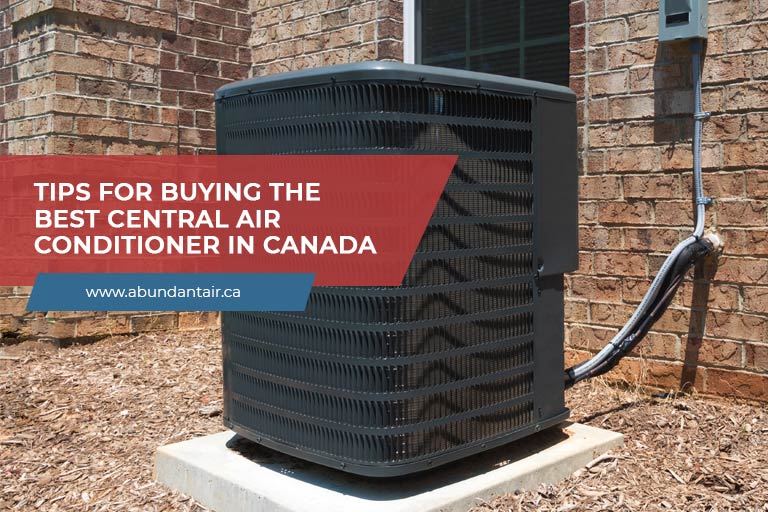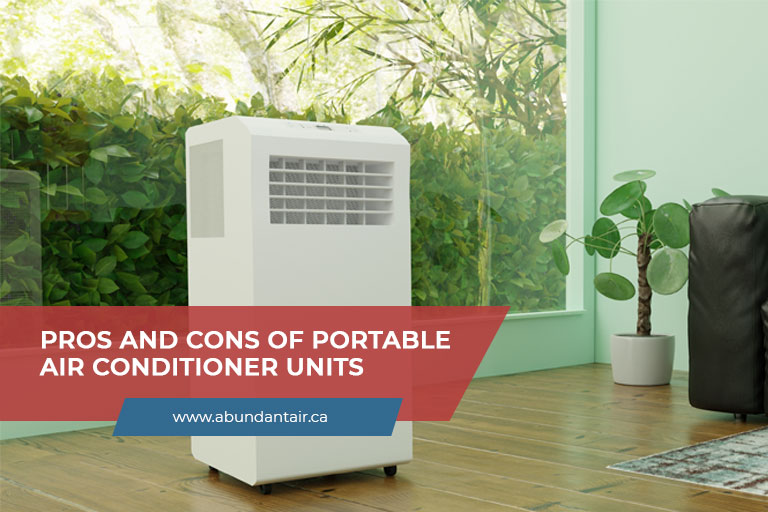The blistering heat of summer can easily be placated with a high-quality central air conditioner unit. Similar to how a refrigerator keeps your produce fresh, a heating and air conditioning unit, does its job by carefully regulating the temperature within your home and providing comfort.
The unit processes the warm air either from within or outside the house, depending on the model, and lets it pass through an evaporator coil. The heat energy from the warm air is then transferred into the coil which has a refrigerant chemical that alters the energy levels. The processed air is then pushed out by the blower into your home. The excess heat, on the other hand, is absorbed by the condenser.
Because it serves a vital function in your home, you have to choose the best central air conditioner in Canada, especially since the country is prone to extremely high temperatures during the summer. Having a high-quality unit will ensure that it will last for at least a decade.
To find the best central air conditioner brands in Canada, here are a few HVAC basics to help you out.
Types of Central Air Conditioners
AC systems can come in 2 basic models that cool air in distinct ways and have different advantages:
- Package System
The term “package” refers to how this model is created. All the components (central air conditioner, condenser, compressor, and evaporator) are placed inside one box or cabinet. This box is usually placed on the roof or a concrete structure right next to the home. It’s also commonly used in small commercial buildings, where the return and supply air ducts are connected to the building’s exterior wall. This model requires no additional indoor furnace.
- Split System
In comparison to the packaged system, the components of a split system are installed separately. The condenser, fan, and compressor are usually placed outside the house, while the evaporator and blower are inside. This model is especially suitable for homes that have a furnace. It can uniformly spread out the processed air within your home and can save you money on your electric bills.
Tips for Buying Your AC
Now that you know the different AC models, it’s time for you to determine the factors to consider when choosing the best one for your home. Follow these tips:
- Ask a licensed technician

Consult with a professional and licensed technician to make sure you’re going in the right direction. With years of experience and extensive knowledge on the subject, these HVAC mechanics can offer you insight into the needs of your home and sound advice in terms of brand, model, horsepower, and maintenance needs.
Ask them questions regarding the air conditioner installation, specifications, and maintenance. You should also inquire regarding the warranty deals of your unit to ensure that you are receiving the best service.
- Inquire about maintenance
The best air conditioner units can deteriorate over time if you do not put in the effort to conduct regular maintenance. Cleaning and annual check-ups are needed to ensure that each component is functioning well. You can always do this yourself, but it’s best to have a professional handle maintenance.
You can also ask the professional about the ins and outs of your AC unit so you’ll be able to detect any future problems and call them before it gets worse. If you’re buying an AC unit, consider first the maintenance schedule and if it fits in your own timetable.
- Choose the system with a high-efficiency rating
AC excellence and quality are measured through a carefully calibrated rating system based on the Seasonal Energy Efficiency Ratio (SEER). This rating allows you to determine the potential of your AC unit to provide cooling.
When you’re purchasing the system, make sure that it has ratings ranging from 13 to 25. If you need more horsepower or you have a bigger space, you can also purchase units with SEER ratings over 25. The higher the rating, the better it will be in terms of electric bill savings.
- Pick the right capacity
Bigger is not always better when it comes to choosing your home’s AC unit. If you want efficient cooling and reasonable electric bills, you should choose a unit that’s suitable for the size of your home.
If the capacity is too small, it will be unable to cool down the entire space. On the other hand, a unit that’s too big can cause air dampness and moulds. For proper capacity computation, consult a professional AC technician who can help you measure the size of the area and determine the right capacity for your home.
- Decide whether to go duct or ductless

When you have an HVAC unit installed, you also have to decide whether or not to have ducts inside your home. Depending on how your home is built, the need for a duct system can vary greatly.
Opt for ductless systems if you are trying to cool down specific rooms in the home. However, if you want to simultaneously cool down the entire house, then it’s better to install a duct system.
- Set up a multi-zone cooling
Having an air conditioner unit in one part of your home can pose a problem when it comes to multi-zone cooling. Since a single unit won’t be able to evenly cool off separate rooms, you’ll have to find a way to reach even the remotest corner of your house, especially during hot summer months. The choice ultimately falls on you if you want isolated cooling or even cooling around the home.
- Go over warranties and service plans
Every AC unit purchase involves a variety of warranties and service plans. Choose the brands that have doable requirements and a good track record of delivering on their promises. This way you’ll be able to save more during repairs and part replacements.
Your choice of an air conditioner unit is something that you’ll have to live with for the coming decade. Make sure that you pick the right one since it will affect your entire home life throughout the seasons.
For your heating and cooling needs in Winnipeg, trust Abundant Air Inc. We offer reasonable rates on our air conditioner repair and installation services. Call us now at (204) 674-4568 for a quotation.










